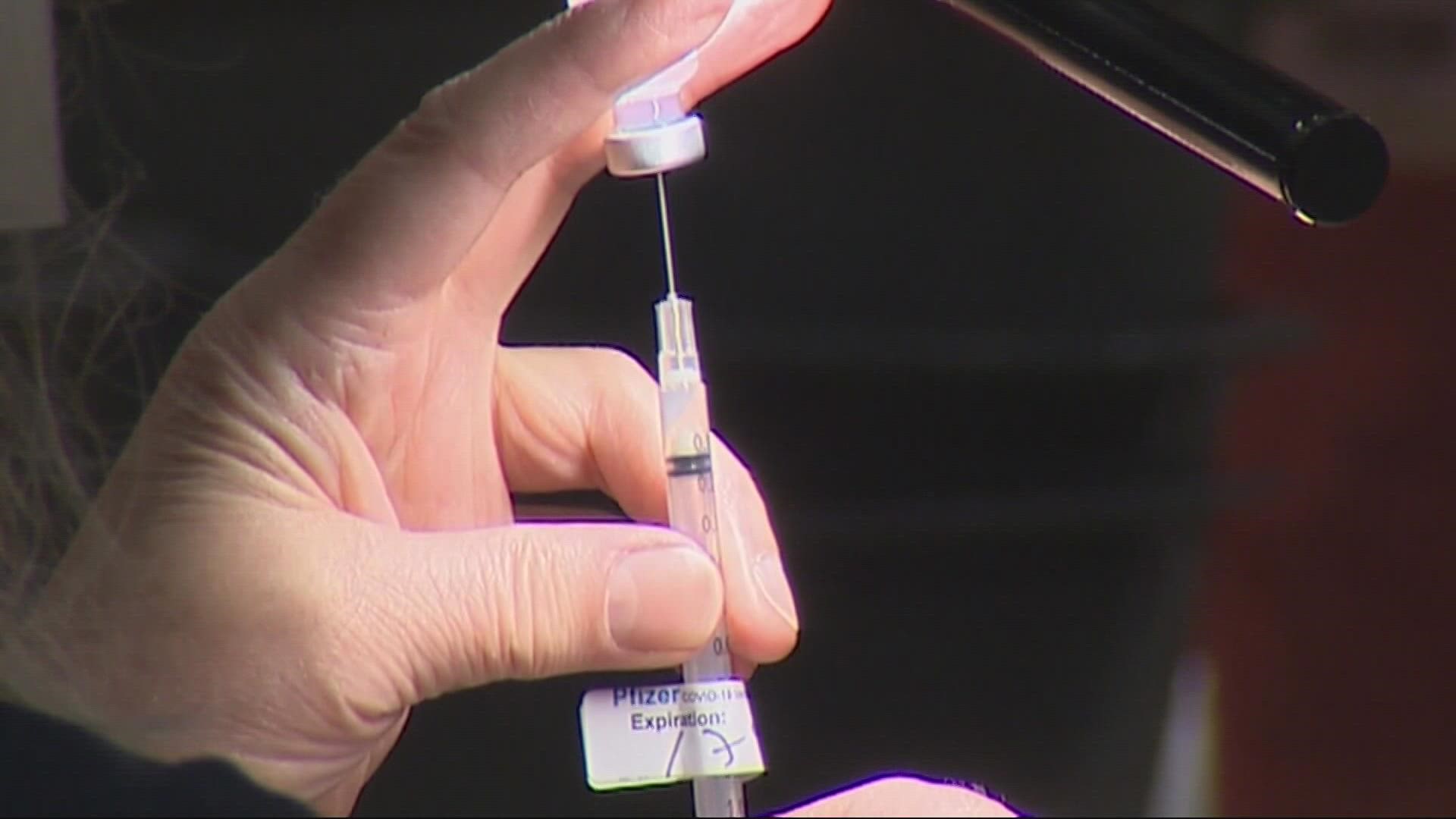PORTLAND, Oregon — By now it's clear that not everyone wants to get the COVD-19 vaccine. While reasons for that may vary, nearly all of them are disputed by public health experts. But what about religious reasons?
A growing number of people are claiming them while trying to avoid vaccination mandates. In Washington, thousands of state workers are trying it. And in Los Angeles, some 2,600 police department employees are citing religion to avoid the shot.
So, is claiming religion just a loophole?
“First of all, the legal landscape is very complicated,” said Lewis & Clark Law School professor Jim Oleske.
Looking back, Oleske said before this wave of vaccination mandates, most religious exemption claims were made from behind bars.
“This often comes up in prison litigation cases where, say, someone who's never been a practicing Jewish person in the past, suddenly says they want kosher meals,” said Oleske. “Well the court has to decide — did they really convert to Judaism or are they asking for the kosher meals because the kosher meals are coming in from the outside and other prisoners aren't handling it?”
Where religion is concerned, Oleske said the same question applies to vaccine exemptions and whether the beliefs behind them are sincere.
“Traditionally courts are very reluctant to second guess religious claims,” said Oleske. “But they do test sincerity.”
Oleske said theoretically, employers could test sincerity by comparing a religious claim with what an employee who filed it may have posted on social media.
“So that's one way of proving it,” said Oleske. “People have actually [posted about] their real basis and then they come in and they say it's about religion.”
While it's one thing to question the sincerity of one's religious exemption claims, Oleske said it's another thing entirely for someone to suggest those claims are unreasonable.
“When it gets to court, they're going to be in a lot of trouble,” said Oleske. “Because courts are going to say it was illegitimate — especially if it's a government employer — to be engaging in questioning the reasonableness of a particular religious belief.”
So where does that leave us? First of all, Oleske believes under current Supreme Court precedent, vaccine mandates hold up. And he believes even traditional supporters of religious exemptions may view things differently through the lens of a global pandemic.
“If your religion believes in human sacrifice, you don't have a right to kill people and be exempt from homicide laws,” said Oleske. “Likewise, many of these people would say yes, I believe there are religious exemptions to most laws but when it's a deadly pandemic, you don't have an exemption from the vaccination requirement.”

